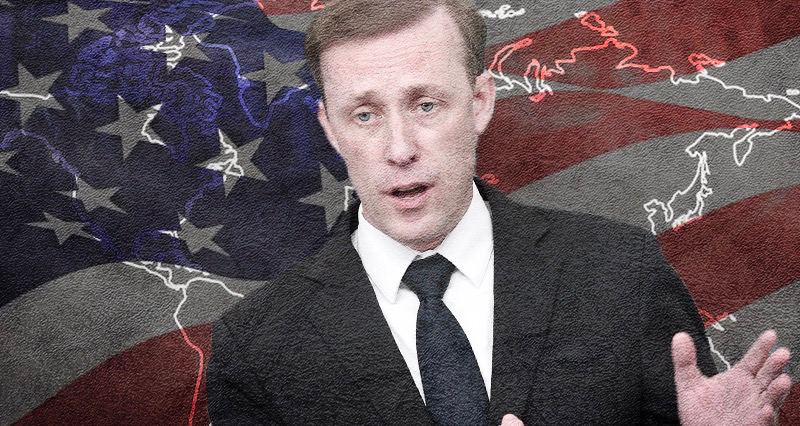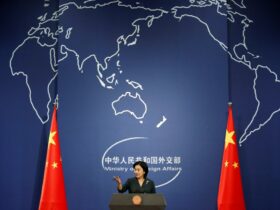By Serhat Latifoğlu
In recent years, there have been significant developments regarding the direction of the American economy. On April 27, 2023, Jake Sullivan, the National Security Advisor, made a pivotal speech. The speech essentially declared the failure of the 40-year orthodox neoliberal policies of the US and the commencement of a state-oriented economic model under the name of the “New Washington Consensus”. The fact that an American National Security Advisor made this speech is enough telling. Let’s first examine the key points of this speech and then its practical applications.
Towards statism
The Biden administration increased social spending and public investments to historically high levels during its first two years. So, the orthodox policies referred to as “normalization” by Turkish Minister of Treasury and Finance Mehmet Şimşek and neoliberals, have begun to be deemed “abnormal” in the US.
In his first speech in Congress, Biden said that public investment and infrastructure projects had thoroughly transformed the country. This defense of state intervention in markets is the opposite of the liberal rhetoric we are accustomed to hearing from US presidents, and evokes former President Roosevelt’s Keynesian policies.
The New Washington Consensus
Jake Sullivan’s speech came at a time when the preeminence of neoliberalism over American political and intellectual life was weakening. In his speech at the Brookings Institution, Sullivan detailed the principles of the New Washington Consensus, which aims to increase state interventions, strengthen labor standards and sustain development.
The new economic doctrine, referred to as “Bidenomics”, ostensibly aims to “humanize the global economy while enhancing growth potential”. According to Sullivan, “contrary to the fears of the allies, US’s gains in this new paradigm do not have to be at the expense of the rest of the world”.
Looking at the program as a whole, the goal is to reduce the US economy’s dependence on other countries, particularly China, and support domestic production. Thus, it lays the foundations of a protectionist economic paradigm, not only detrimental to the US’s rivals but also to its allies.
The end of neoliberalism
The program is essentially a comprehensive critique of the economic model that the US has been implementing for forty years. Neoliberalism, without being explicitly named, is being torn to shreds. According to Sullivan, orthodox neoliberal policies are based on three fundamentally flawed premises:
- The free market is efficient and effective.
- Economic growth, no matter how it is achieved, is good.
- Economic integration will make countries more responsible and open, leading to a more peaceful world.
None of these premises have come to be true. The US economy, due to 40 years of neoliberal policies, has lost its innovation capability, become dependent on countries like China and caused severe inequality and social unrest.
Import substitution and production
Now let’s look at the practical applications of the program.
Biden’s new economic policies aim to direct capital towards more sustainable and geopolitically resilient forms of production through subsidies and direct public investments. The CHIPS Act encourages domestic semiconductor production, reducing America’s reliance on Taiwan for these critical inputs.
Meanwhile, the Inflation Reduction Act (IRA) promotes critical mineral mining both within the U.S. and in allied countries. Currently, China processes more than 80% of the world’s critical minerals. The IRA aims to subsidize the innovation and proliferation of green technologies while also encouraging decarbonization.
No consensus yet
There is a major obstacle facing the New Washington Consensus: The “political-economy” in the US. There is a strong “coalition” between Democrats, Republicans, various levels of the US government and the globalist wing of the business world that opposes such a change, they do not act as a single entity though.
It is too early to see the changes that the New Washington Consensus envisages as a return to Keynesian policies of the 1930s. For monetary policies of the Fed are still within the neoliberal orthodox framework. Yet, it is worth remembering Biden’s intervention with the Fed at the end of last year, which led the Fed to change its policy to interest rate cuts.
This intervention suggests that in the coming years, political authority will be more influential over the Fed and the abandonment of orthodox monetary policies is highly likely.
The US breaks the mold
Traditionally, neoliberals view public spending and social aids as the primary factors that fuel inflation. Over the past four years, the US made the highest public spending and social assistance in its history. As usual, neoliberal attribute the rapid rise in inflation to public spending by neoliberals. However, most mainstream economists, including the IMF, the World Bank, and various studies, attribute the primary cause of inflation to supply-side factors. High energy costs, disrupted supply chains, and companies’ excessive greed to profit have caused inflation. In fact, despite rising public spending, especially in defense, inflation fell from 9.1% to 3.3% as the impact of the supply shock diminished.

















Leave a Reply